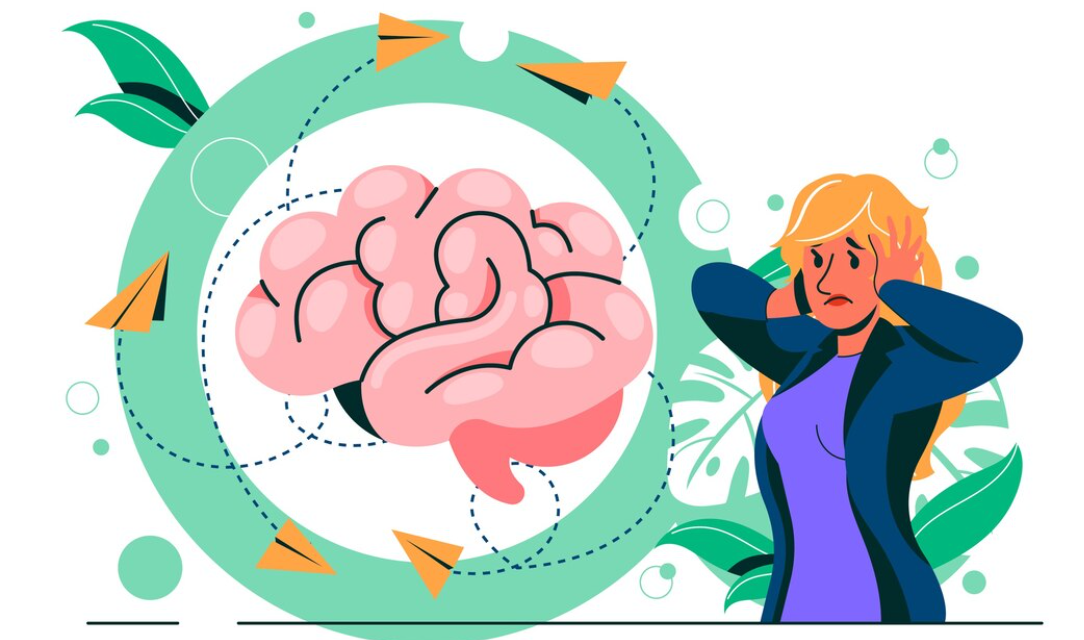Prefer to listen? Check out my podcast here!
ADHD (attention deficit and hyperactivity disorder) is a common and underdiagnosed medical condition. It is estimated to affect at least 5% of school age children, and somewhere between 2.5–4.4% of adults. While ADHD may reflexively bring to mind a picture of a hyperactive kid who is thin, and while some people with ADHD are lean, it has emerged that ADHD and obesity are actually intricately linked.
Consider the inattention symptoms of ADHD, which can include:
- Difficulty in giving close attention to details or making careless mistakes
- Having difficulty sustaining attention in tasks
- Not following through on instructions, failing to finish chores or duties
- Difficulty organizing tasks/activities
- Avoiding, disliking, or being reluctant to engage in tasks that require sustained mental effort
- Losing things necessary for tasks or activities
- Being easily distracted by extraneous stimuli
- Being forgetful in daily activities
When we look at the above list, with the knowledge that weight management requires long term, dedicated, and organized efforts, it comes as no surprise that ADHD is indeed a risk factor for obesity. An analysis of existing data found that, while results from individual studies were mixed, overall, adults with ADHD were 70% more likely to have obesity compared to those without ADHD, and kids with ADHD were about 40% more likely to have obesity than those without ADHD. Conversely, they also found that people with obesity were more likely to have ADHD than people without obesity. In other words, the link between ADHD and obesity is a two-way street.
How does ADHD contribute to obesity?
It can be harder to stick to healthier eating patterns and activity plans. It can be harder to control impulses (eg reaching for that delicious dessert in your break room at work or your pantry as you walk by). People with ADHD may be more prone to impulsive eating including binging. Some people with ADHD may tend towards getting insufficient sleep. Some may tend towards more time spent with television or video games, resulting in less activity. Thus, it is not surprising that people with ADHD may have less success in managing their weight.
How does obesity contribute to ADHD?
Obesity leading to poor sleep, and possibly obstructive sleep apnea, may cause excessive daytime sleepiness that could make ADHD symptoms worse. There may be a genetic or biological link between ADHD and elevated weight, with preliminary genetic studies suggesting a possible link. It has also been suggested that the chronic inflammation of obesity may exacerbate severity of hyperactivity/impulsivity symptoms.
Can treatment of ADHD improve or prevent obesity?
Treatment of ADHD can include psychological support, including goal setting, supporting behavioural change, assisting with organizational skills and technology that can help this, cognitive behavioral therapy, and ADHD medication. Treatment of ADHD can reduce impulsiveness, reduce inattention, and improve inhibitory control (ie the ability to say no), potentially resulting in decreased food intake, and a better organized dietary plan which becomes easier to stick to. An increased capacity to persist with tasks and plans can facilitate a better ability to adhere to healthier lifestyle choices.
As for treatment of ADHD with medication, a recent meta analysis of eight studies of over 19,000 kids/teens was undertaken, 10,279 of whom were prescribed ADHD medication and 9,170 not prescribed ADHD medication. They found that the prevalence of obesity was 35% lower in the treated group than the non treated group. The analysis noted above found that those medicated for ADHD were not at higher risk of obesity (most/all of these data being in people age <18 – data in adults, and data addressing our question using other non-medication treatments for ADHD, is sorely needed). Appetite suppression is a known effect of many ADHD medications. It has been suggested that the appetite effect is only evident in the first weeks of treatment, but I wonder if the set point of hunger/fullness is simply reset at a lower weight, similar to how many of our weight management medications work.
BOTTOM LINE: It’s important to screen people struggling with elevated weight for possible ADHD. Similarly , people with ADHD should be screened for possible risk of obesity . Further research across age groups is needed to explore whether long term treatment of ADHD with various treatment modalities can lead to better long term weight management.
Check me out on X/twitter! @drsuepedersen
Share this blog post using your favorite social media link below!
www.drsue.ca © 2024












